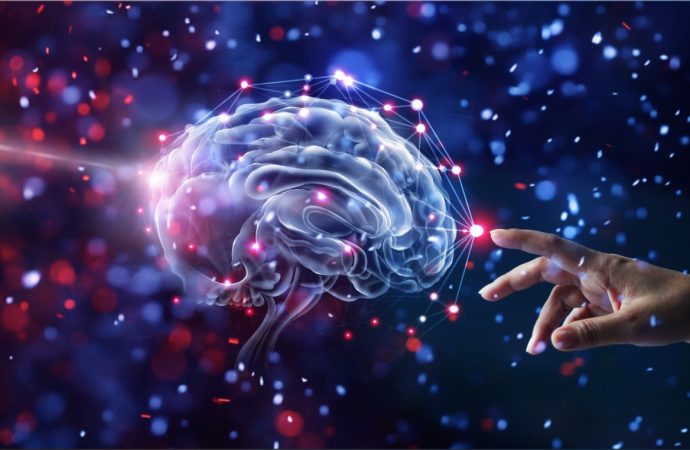Mental health treatment has come a long way over the past few decades, evolving from rudimentary and often inhumane methods to sophisticated, evidence-based practices. As we step into 2024, the landscape of mental health treatment continues to transform, driven by technological advancements, innovative therapies, and a growing understanding of the human mind. This article explores
Mental health treatment has come a long way over the past few decades, evolving from rudimentary and often inhumane methods to sophisticated, evidence-based practices. As we step into 2024, the landscape of mental health treatment continues to transform, driven by technological advancements, innovative therapies, and a growing understanding of the human mind. This article explores the new approaches in mental health treatment that are set to revolutionize the field in the coming year.
Technological Advancements
Technology is at the forefront of the future of mental health treatment. The integration of digital tools and platforms has made mental health care more accessible, personalized, and effective.
Teletherapy and Virtual Reality (VR) Therapy
Teletherapy has gained significant traction, especially in the wake of the COVID-19 pandemic. It offers the convenience of receiving therapy from the comfort of one’s home, breaking down geographical barriers and reducing the stigma associated with visiting a therapist’s office. In 2024, teletherapy platforms are expected to become even more sophisticated, incorporating artificial intelligence (AI) to match patients with the most suitable therapists and to provide real-time support through chatbots.
Virtual Reality (VR) therapy is another groundbreaking approach. By creating immersive environments, VR therapy can help individuals confront and manage conditions like PTSD, anxiety, and phobias in a controlled setting. For instance, a person with social anxiety can practice public speaking in a virtual auditorium, while someone with PTSD can safely revisit and process traumatic events.
Wearable Technology
Wearable devices that monitor physiological and psychological states are becoming increasingly prevalent. These gadgets can track heart rate, sleep patterns, and stress levels, providing valuable data to both patients and healthcare providers. In 2024, we anticipate more advanced wearables that can detect early signs of mental health issues, prompting timely interventions. These devices could also offer biofeedback, helping individuals learn to regulate their emotional responses.
Innovative Therapies
Beyond technology, several innovative therapies are emerging, offering new hope for those struggling with mental health conditions.
Psychedelic-Assisted Therapy
Psychedelic substances like psilocybin (found in magic mushrooms) and MDMA (commonly known as ecstasy) are showing promise in treating conditions such as depression, PTSD, and addiction. Clinical trials have demonstrated that, when used in a controlled, therapeutic setting, these substances can facilitate profound emotional and psychological healing. In 2024, we expect to see more research and possibly even the approval of these therapies for clinical use, providing new avenues for treatment-resistant conditions.
Transcranial Magnetic Stimulation (TMS)
Transcranial Magnetic Stimulation (TMS) is a non-invasive procedure that uses magnetic fields to stimulate nerve cells in the brain. It has been approved for treating depression and is being explored for other conditions like anxiety and OCD. TMS offers a promising alternative for individuals who do not respond to traditional treatments. In the coming year, advancements in TMS technology and protocols are likely to enhance its efficacy and accessibility.
Personalized Medicine
The concept of personalized medicine is transforming mental health treatment. By analyzing genetic, environmental, and lifestyle factors, healthcare providers can tailor treatments to the individual. Genetic testing, for instance, can help determine which medications are likely to be most effective for a particular patient, reducing the trial-and-error approach that often accompanies psychiatric medication. In 2024, we expect more widespread use of personalized medicine, leading to more effective and targeted treatments.

Picture by: Yandex.com
Holistic and Integrative Approaches
The future of mental health treatment is not limited to technological and pharmacological innovations. Holistic and integrative approaches that consider the whole person—mind, body, and spirit—are gaining traction.
Mindfulness and Meditation
Mindfulness and meditation have been shown to reduce stress, anxiety, and depression. These practices encourage individuals to focus on the present moment, fostering a sense of calm and well-being. In 2024, mindfulness and meditation are likely to be integrated more deeply into mainstream mental health treatment, supported by growing evidence of their benefits.
Nutritional Psychiatry
The connection between diet and mental health is becoming increasingly evident. Nutritional psychiatry focuses on how food affects mood and cognitive function. A balanced diet rich in essential nutrients can support mental health, while deficiencies in certain vitamins and minerals can exacerbate conditions like depression and anxiety. In the coming year, we anticipate more research and clinical applications of nutritional psychiatry, offering a holistic approach to mental health care.
Exercise and Physical Activity
Regular physical activity has been shown to improve mood, reduce anxiety, and enhance cognitive function. Exercise stimulates the production of endorphins, which are natural mood lifters, and promotes overall brain health. In 2024, mental health treatment plans are likely to incorporate personalized exercise regimens, recognizing the profound impact of physical activity on mental well-being.
Community and Peer Support
The importance of community and peer support in mental health treatment cannot be overstated. Isolation and loneliness can exacerbate mental health issues, while a supportive community can provide a sense of belonging and understanding.
Peer Support Networks
Peer support networks, where individuals with similar experiences provide mutual support, are gaining recognition as valuable components of mental health care. These networks offer empathy, validation, and practical advice, helping individuals navigate their mental health journeys. In 2024, we expect to see the expansion of peer support programs, both in-person and online, as an integral part of comprehensive mental health care.
Community-Based Programs
Community-based mental health programs aim to provide support within local communities, making mental health care more accessible and culturally relevant. These programs often involve collaborations between healthcare providers, social services, and community organizations. In the coming year, we anticipate more investment in community-based initiatives, recognizing their potential to address mental health disparities and promote overall well-being.
The Role of Policy and Advocacy
Advancements in mental health treatment are not solely driven by technology and innovation; policy and advocacy play crucial roles in shaping the future of mental health care.
Mental Health Parity
Mental health parity laws, which require insurance companies to provide equal coverage for mental health and physical health conditions, are essential for ensuring access to care. In 2024, ongoing advocacy efforts aim to strengthen and expand these laws, addressing gaps in coverage and reducing financial barriers to treatment.
Workplace Mental Health
Workplace mental health is gaining attention as employers recognize the impact of mental health on productivity and employee well-being. Initiatives such as mental health days, flexible work arrangements, and employee assistance programs are becoming more common. In the coming year, we expect to see more comprehensive workplace mental health policies, promoting a culture of support and understanding.
Conclusion
The future of mental health treatment in 2024 is bright, characterized by technological advancements, innovative therapies, holistic approaches, and a strong emphasis on community and policy support. As we continue to explore and embrace these new approaches, we move closer to a world where mental health care is accessible, effective, and compassionate for all. Whether through the integration of VR therapy, the promise of psychedelic-assisted treatments, or the holistic benefits of mindfulness and nutrition, the evolving landscape of mental health treatment offers hope and healing for countless individuals.
















